Find Help
More Items From Ergsy search
-
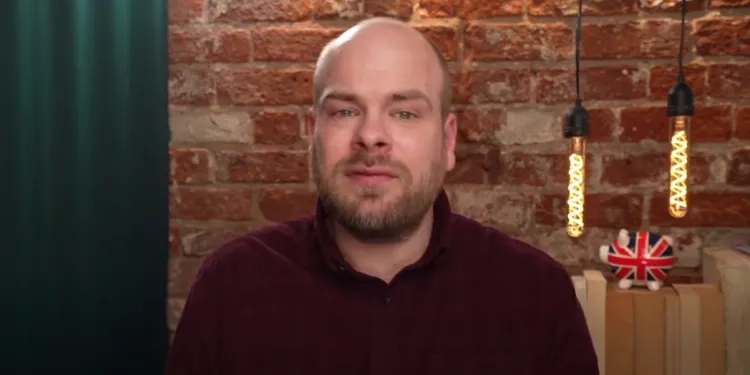
What Happens to Tax Debt After Death? (UK Laws)
Relevance: 100%
-

What is the role of an executor in handling tax debts?
Relevance: 67%
-

Can the executor use the deceased's assets to pay tax debts?
Relevance: 62%
-
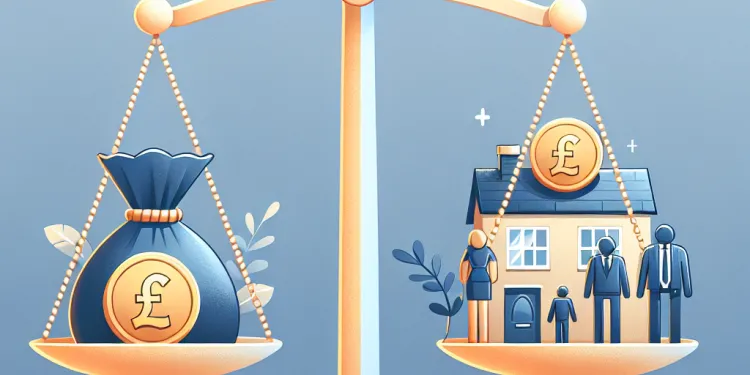
Do unpaid tax debts affect Inheritance Tax calculations?
Relevance: 62%
-

Who is responsible for paying the deceased’s tax debts?
Relevance: 61%
-

What if the estate does not have enough assets to pay all tax debts?
Relevance: 51%
-
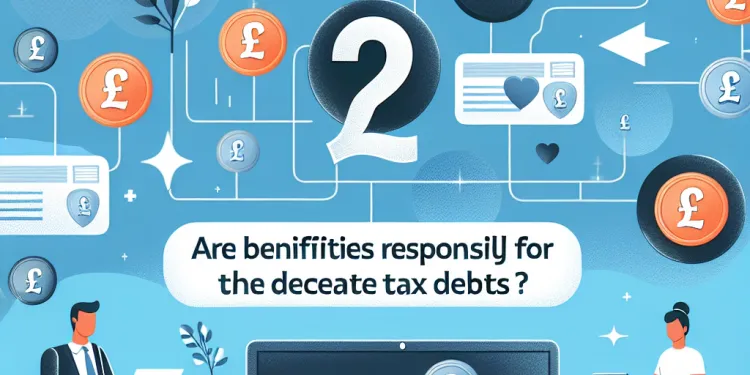
Are beneficiaries responsible for the deceased's tax debts?
Relevance: 49%
-
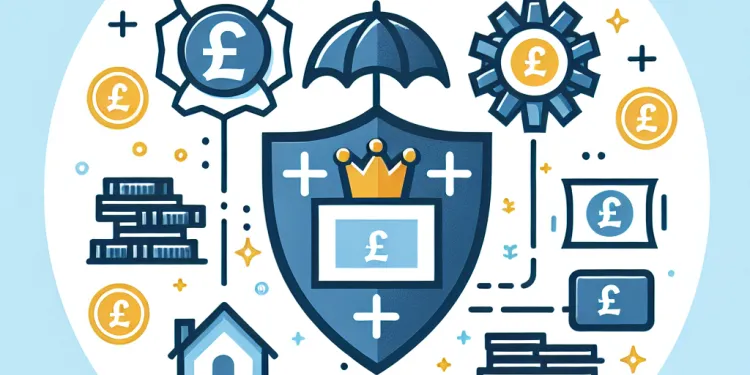
How is Inheritance Tax (IHT) dealt with after death?
Relevance: 46%
-

Do I need to inform HMRC about the death?
Relevance: 45%
-

How do governments ensure compliance with wealth tax laws?
Relevance: 44%
-
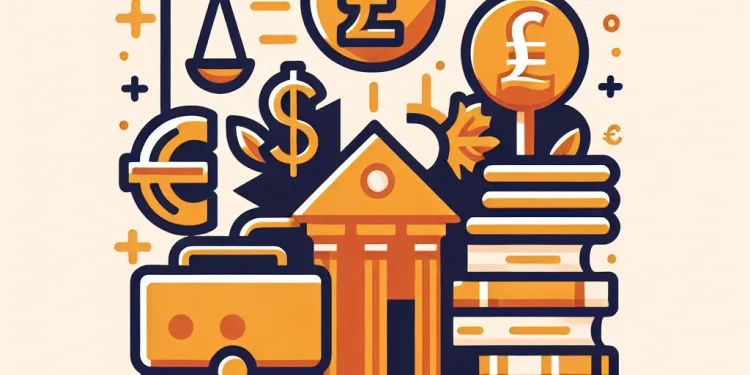
How do I notify HMRC of someone’s death?
Relevance: 43%
-

What is the process for paying inheritance tax?
Relevance: 39%
-
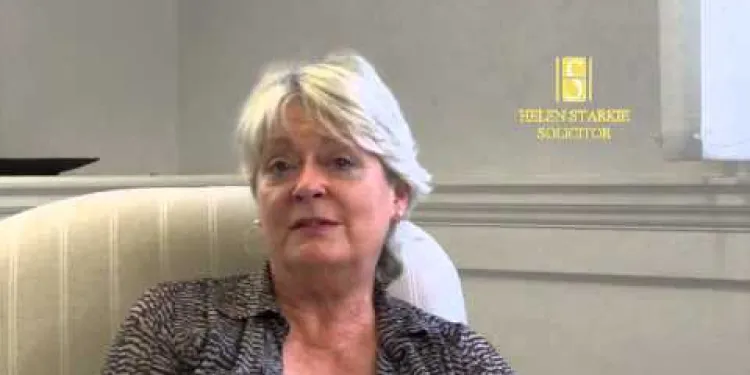
Wills, Probate and Tax Planning in the UK
Relevance: 39%
-

Three Debt Free Methods in 2023 | Free Debt Calculator Tracker
Relevance: 38%
-

What should I do if I need help managing the tax affairs of the deceased?
Relevance: 37%
-

Owed money? - Professional UK Debt Collectors - 1st choice solution
Relevance: 37%
-

Alcohol-Related Deaths in Scotland
Relevance: 36%
-

What is the seven-year rule relating to inheritance tax?
Relevance: 35%
-

Can I take bereavement leave for the death of a close friend?
Relevance: 35%
-

The new death certification process in the UK
Relevance: 35%
-
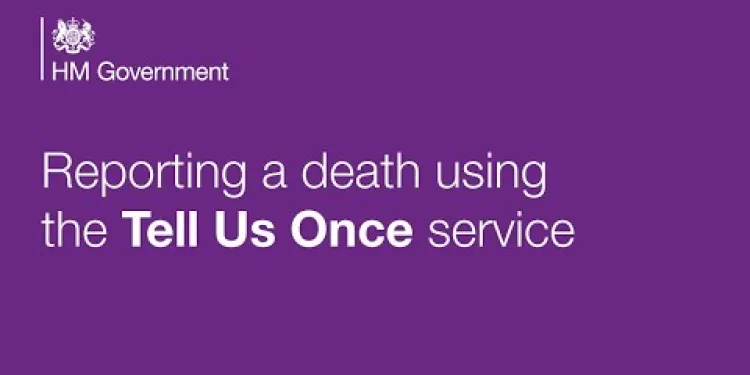
Reporting a death using the Tell Us Once service
Relevance: 34%
-

How is a wealth tax typically calculated?
Relevance: 34%
-

What is inheritance tax in the UK?
Relevance: 34%
-

What happens to the pension benefits upon the death of a firefighter?
Relevance: 33%
-
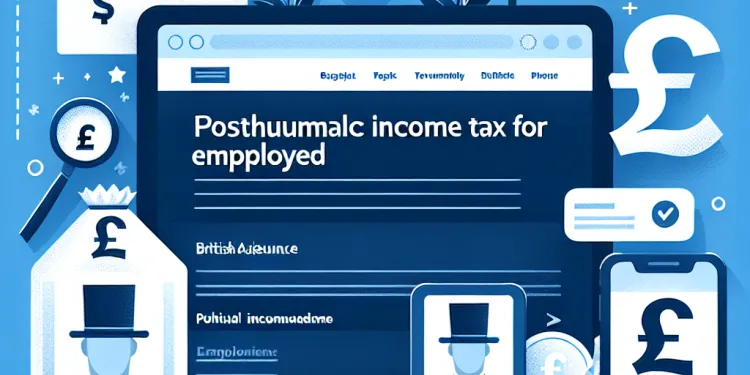
What happens to a deceased’s Income Tax if they were employed?
Relevance: 33%
-
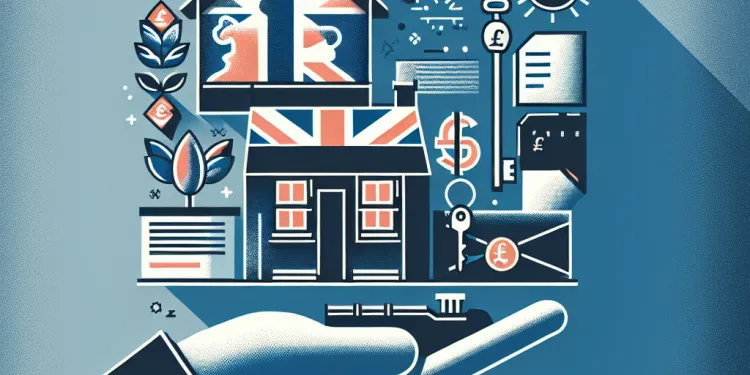
Does owning property abroad affect UK inheritance tax?
Relevance: 33%
-

What taxes need to be paid from the deceased’s estate?
Relevance: 32%
-

Can my tax refund be applied to my future tax obligations?
Relevance: 32%
-
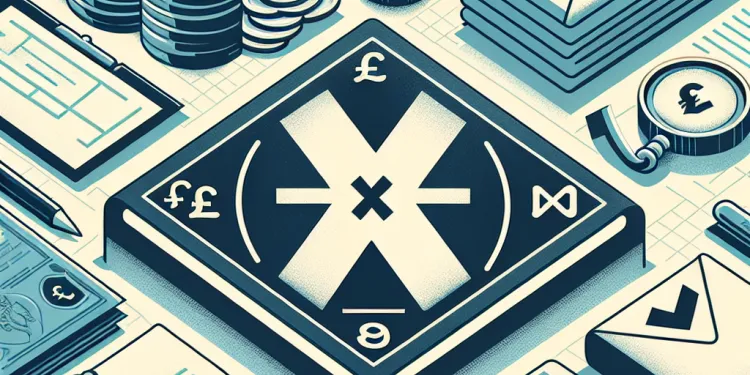
Is it necessary to complete a final tax return for the deceased?
Relevance: 32%
-
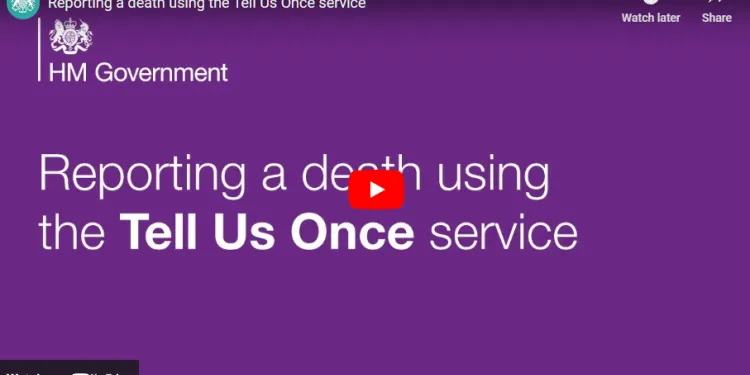
Reporting a death using the "Tell Us Once" service
Relevance: 32%
-

www.DebtMadeSimple.co.uk - Trust Deeds, Debt Arrangement Schemes, and Bankruptcy Services
Relevance: 32%
-
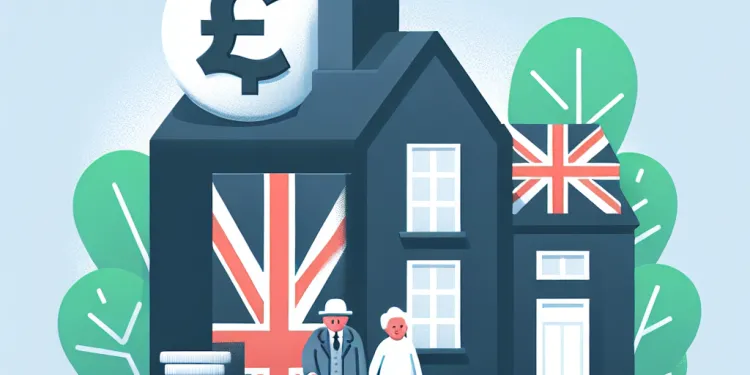
What is inheritance tax in the UK?
Relevance: 31%
-

Would a wealth tax apply to foreign assets?
Relevance: 30%
-
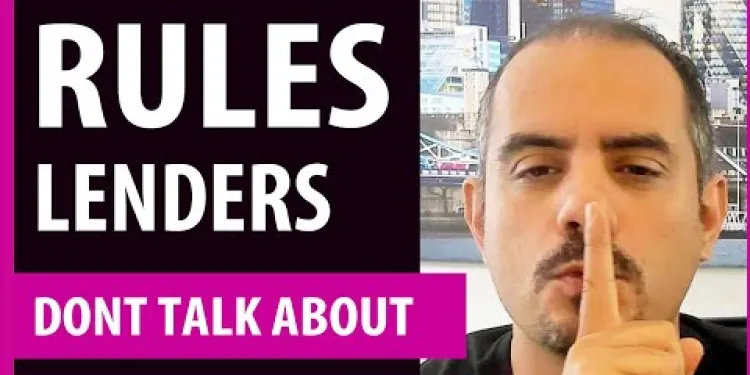
UK Mortgage Rules Lenders Don't Talk About - Debt To Income Ratio
Relevance: 30%
-

Is real estate included in wealth tax calculations?
Relevance: 30%
-

Does the HMRC Employer Bulletin cover changes in employment law?
Relevance: 29%
-

Could a wealth tax encourage tax avoidance?
Relevance: 29%
-
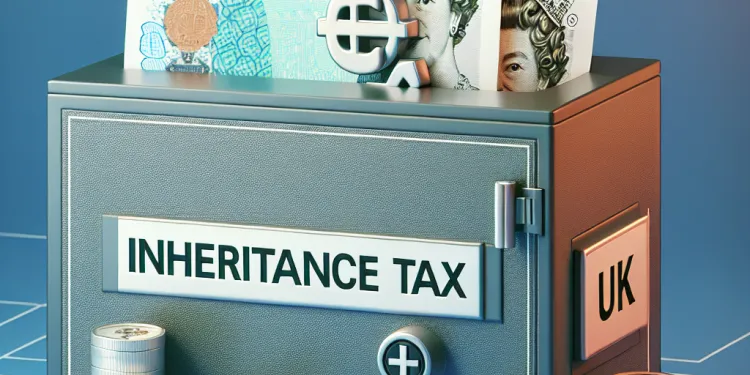
Where can I find more detailed information on inheritance tax?
Relevance: 29%
-

Are there any laws against binge drinking?
Relevance: 29%
-
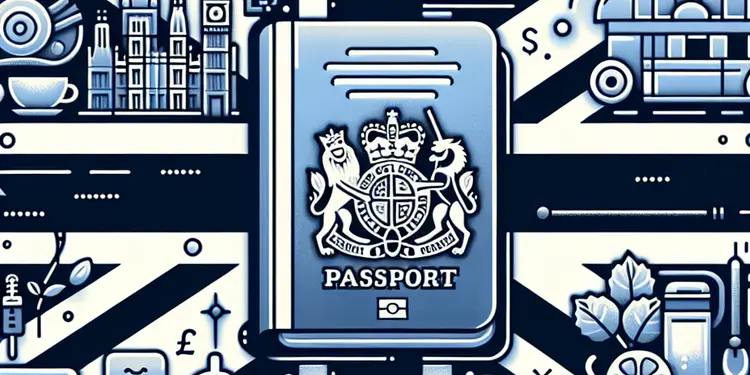
Is tax evasion an offence of dishonesty?
Relevance: 29%
In the United Kingdom, when an individual passes away, their tax obligations do not necessarily disappear. Tax debts accrued during a person's lifetime can indeed continue to exist after their death, and it is crucial for the deceased's estate and their beneficiaries to understand the implications.
Upon death, the deceased's assets, including property, investments, and savings, form what is known as their estate. The executor or administrator of the estate is responsible for managing this estate, which includes settling any outstanding tax debts. In the UK, there are various types of taxes that can be relevant, such as Inheritance Tax, Capital Gains Tax, and Income Tax.
Inheritance Tax (IHT) is a significant concern for many estates. It is generally paid from the assets left behind before beneficiaries receive their inheritance. However, the tax treatment can vary depending on the size and composition of the estate, as well as any exemptions or reliefs that may apply.
In cases where the estate cannot immediately cover the tax debt, HM Revenue and Customs (HMRC) may grant an extended period for payment or work out a payment plan. However, if the tax debt remains unresolved, HMRC can ultimately resort to legal action against the estate or beneficiaries.
In conclusion, tax debt after death in the UK can be a complex issue, necessitating careful management of the deceased's estate to ensure that all obligations are met. Executors or administrators should seek professional advice to navigate the intricacies of tax law and avoid potential legal consequences.
What Happens to Tax Debt After Death? (UK Laws)
Introduction to Tax Debt After Death
In the United Kingdom, dealing with the financial obligations of a deceased person can be challenging. One particularly important aspect is understanding what happens to any outstanding tax debt. This guide provides an overview of the current laws and practices regarding tax debt after someone passes away.
Responsibility for Paying the Tax Debt
When a person dies, their estate becomes responsible for any outstanding debts, including tax liabilities. The estate consists of all the deceased's assets, including property, savings, and personal possessions. The executor of the will, or an administrator if there is no will, is responsible for managing the estate and ensuring debts are settled before distribution to beneficiaries.
Settling Tax Debts
The executor must ensure that all outstanding tax debts are identified and paid. This includes Income Tax, Capital Gains Tax, and Inheritance Tax, if applicable. Failure to settle these debts can lead to penalties and interest accruing. The executor should contact HM Revenue and Customs (HMRC) to inform them of the death and obtain the necessary tax information.
Paying Inheritance Tax
Inheritance Tax (IHT) may be due if the estate's value exceeds the current threshold. The executor is responsible for calculating and paying the IHT. This tax must be paid within six months of the end of the month in which the person died to avoid interest charges. In some cases, the tax can be paid in installments if the value of the estate exceeds certain thresholds.
Property and Tax Debt
If the deceased owned property, it might need to be sold to cover the outstanding tax debt. However, if heirs wish to keep the property, they might consider other means to pay the tax, such as liquidating other assets or taking out a loan against the property.
Conclusion
Dealing with tax debt after death can be complex, but understanding the responsibilities and processes involved is critical. Executors must ensure that all outstanding tax liabilities are settled promptly to avoid complications and additional costs. Consulting with a financial advisor or solicitor experienced in estate management and tax law is advisable to navigate these obligations effectively.
In the United Kingdom, when someone dies, they might still owe taxes. These taxes do not just go away. The people handling the person’s things (called an estate) and the people who will get their things need to know what this means.
When someone dies, everything they own, like their house, money, and other things, becomes their estate. The person who manages the estate (called an executor or administrator) must take care of everything. This includes paying any taxes that the person who died still owes. In the UK, there are different taxes, like Inheritance Tax, Capital Gains Tax, and Income Tax.
Inheritance Tax is important for many estates. It is taken from the things left by the person before the people who inherit get their share. How much tax needs to be paid can change based on how much the estate is worth and if there are any special rules that lower the tax.
If the estate does not have enough money to pay the taxes right away, the tax office (called HMRC) might give more time to pay or agree on a plan to pay over time. But, if the taxes are not paid, HMRC can take the estate or the people who inherit to court.
In the end, dealing with taxes after someone dies in the UK can be complicated. Because of this, it is important for the people managing the estate to be careful and make sure all taxes are paid. It is a good idea for them to ask an expert for help to understand the tax rules and avoid any legal trouble.
What Happens to Tax Debt After Death? (UK Laws)
Introduction to Tax Debt After Death
In the UK, sorting out a person's money matters after they die can be tough. One big part of this is handling any tax they still owe. This guide will help you understand what happens with those tax debts.
Responsibility for Paying the Tax Debt
When someone dies, their money and belongings must be used to pay what they owe, including taxes. All these things are called an 'estate'. The person who looks after the will, called the executor, handles this job. If there’s no will, an 'administrator' will do it. They make sure debts are paid off before giving out what's left to family or friends.
Settling Tax Debts
The executor must find out what taxes the person owed, like Income Tax, Capital Gains Tax, or Inheritance Tax. They must pay these taxes to avoid getting into trouble or having to pay more money. The executor should tell HM Revenue and Customs (HMRC) about the person's death and get the needed tax details.
Paying Inheritance Tax
If the estate is worth a lot, Inheritance Tax might be due. The executor calculates and pays this tax. The tax should be paid within six months after the person’s death to avoid extra charges. Sometimes, you can pay bit by bit if the estate is very large.
Property and Tax Debt
If the person owned a house, it might need to be sold to pay taxes. If the family wants to keep the house, they may have to sell other things or borrow money using the house as security.
Conclusion
Handling tax after someone dies is tricky, but it’s important to know the steps. Executors should settle all tax debts quickly to avoid problems. It's a good idea to talk to a financial advisor or lawyer who knows about estate and tax issues to get the right help.
Frequently Asked Questions
What happens to tax debt after someone dies in the UK?
When someone dies in the UK, any outstanding tax debts are considered liabilities of their estate. The executor or administrator of the estate is responsible for settling these debts using the estate's assets before any distribution to beneficiaries.
Who is responsible for paying the deceased’s tax debts?
The executor or administrator of the estate is responsible for paying the deceased’s tax debts using the estate’s assets.
What if the estate does not have enough assets to pay all tax debts?
If the estate does not have enough assets to cover all tax debts, the outstanding debts are usually written off. Beneficiaries are not generally liable to pay these debts unless they have provided a personal guarantee.
Are beneficiaries responsible for the deceased's tax debts?
No, beneficiaries are not responsible for the deceased's tax debts unless they have provided a personal guarantee.
What taxes need to be paid from the deceased’s estate?
Taxes that may need to be paid from the deceased’s estate include any outstanding Income Tax, Inheritance Tax (IHT), Capital Gains Tax (CGT), and any other owed taxes.
How is Inheritance Tax (IHT) dealt with after death?
Inheritance Tax (IHT) is calculated based on the value of the estate over a certain threshold. The executor or administrator must arrange for the IHT to be paid, usually within six months of the death.
Can the executor use the deceased's assets to pay tax debts?
Yes, the executor or administrator can sell or use the deceased’s assets to pay off any outstanding tax debts.
What are the steps to manage tax affairs after someone dies?
The steps include notifying HMRC about the death, completing the deceased's tax returns, obtaining a grant of probate (if necessary), and settling any outstanding tax liabilities with the estate’s assets.
Do I need to inform HMRC about the death?
Yes, it is important to inform HMRC about the death as they need to know to close the deceased's tax records and assess any outstanding tax liabilities.
How do I notify HMRC of someone’s death?
You can notify HMRC of someone's death through the 'Tell Us Once' service if available or directly via phone or post using the relevant forms and documentation.
What happens to a deceased’s Income Tax if they were employed?
If the deceased was employed, the employer will issue a P45 and final pay details. The executor must include these in the final tax return to HMRC.
Is it necessary to complete a final tax return for the deceased?
Yes, the executor will need to complete a final tax return, known as the 'Date of Death' return, which covers the period from the start of the tax year up to the date of death.
What is the role of an executor in handling tax debts?
The executor's role involves managing the deceased's assets, paying off any debts including tax debts, and distributing the remaining estate to the beneficiaries.
Do unpaid tax debts affect Inheritance Tax calculations?
Yes, unpaid tax debts are considered liabilities of the estate and reduce the value of the estate, which can impact the total amount of Inheritance Tax owed.
What should I do if I need help managing the tax affairs of the deceased?
If you need help managing the tax affairs of the deceased, you can seek advice from a solicitor, an accountant, or directly contact HMRC for guidance.
What happens to tax debt when someone dies in the UK?
When someone dies, they might owe money to the government. This money is called tax debt.
Here is what happens:
- The money they leave behind is called an estate. This includes things like their house, car, and savings.
- The tax debt is paid from the estate before any money is given to family or friends.
- If there is not enough money in the estate to pay all the debts, the tax office and other people owed money will be paid in a special order.
If you need help, you can:
- Talk to a lawyer who knows about money and estates.
- Use a calculator online to see how debts are paid from an estate.
In the UK, when a person dies, any taxes they owe need to be paid. These taxes are part of what the person left behind, called their estate. The person who takes care of the estate is called the executor or administrator. They must pay these taxes using money or things from the estate before giving anything to the people who will receive it, called beneficiaries.
To help understand, you can:
- Ask someone you trust to explain it to you.
- Use a dictionary to look up words you don't know.
- Find videos or pictures that show what an executor does.
Who pays the tax debts of someone who has died?
The person who takes care of the money and things of someone who has died has to pay that person's taxes. They use the money and things left by the person who died to pay these taxes.
What happens if there is not enough money to pay all taxes?
If there is not enough money or things left by the person who died to pay all the taxes, the unpaid taxes are usually forgiven, which means they don't have to be paid. The people who are supposed to get the money or things (called beneficiaries) usually don't have to pay the taxes, unless they promised to pay them with a personal guarantee.
Do people who get money or things from someone who died have to pay that person's taxes?
No, if someone dies and owes taxes, the people who get their things (called beneficiaries) don't have to pay those taxes. This is true unless they promised to pay the taxes themselves.
What taxes must be paid from the money and things of someone who has died?
If someone has died, there might be some taxes to pay. These can be:
- Income Tax: Money owed from earnings.
- Inheritance Tax (IHT): Money owed on their things.
- Capital Gains Tax (CGT): Money owed on things they sold for more than they bought them.
- Other taxes they did not pay yet.
It can help to use tools like a calculator or get help from a friend or family. You can also ask an adult to help understand and figure out what needs to be done.
What happens with Inheritance Tax after someone dies?
When a person dies, their money and things might be taxed. This is called Inheritance Tax (IHT). Here is how it works:
- First, you need to find out if any tax is owed. This depends on how much money and how many things the person left behind.
- If tax is owed, it must be paid. This usually needs to be done before the money and things can be given to family or friends.
- Sometimes, people use special plans to lower the tax. It is a good idea to talk to someone who knows a lot about this, like a financial advisor.
You can use tools like simple calculators or ask someone for help to make it easier to understand.
Inheritance Tax is a kind of money you pay to the government. It depends on how much the person who died owned. If they had a lot, you might need to pay this tax. The person who looks after the things of the person who died, called the executor, has to make sure the tax is paid. They should do this in about six months after the person has died.
Try using a calendar to remind you about the six-month date. You can also ask a friend or family member to help you understand and organize things.
Can the person in charge use the things the person who died owned to pay tax money owed?
Yes, the person in charge can sell things that belonged to the person who died. They can use the money to pay any taxes that are still owed.
How do you handle taxes after someone dies?
Here are easy steps to help you manage taxes when a person passes away:
- Get a copy of the death certificate. This is a paper that proves the person has died.
- Find out if there is a will. A will is a special paper that says who gets the person's money and things.
- Contact a lawyer or a tax expert. They can help you with the tax forms.
- Tell the tax office about the death. You can call them or write a letter.
- Collect the person's bank and tax papers. This helps you know what money they had.
- Fill out a final tax return. This is the last set of tax forms for the person who died.
Remember, it’s okay to ask for help if you feel unsure.
You need to do these steps:
Tell HMRC about the person who died. Fill out their tax forms. Get a probate paper if you need it. Pay any tax money they owe using what they left behind.
Do I need to tell HMRC if someone dies?
Yes, you should tell HMRC if someone has died. They need to know to close the person's tax files and check if there is any tax money still to be paid.
How do I tell HMRC when someone has died?
You can let HMRC know when someone has died. You can use the 'Tell Us Once' service if it is available. If not, you can call them or send a letter with the right forms and papers.
What happens to a person's Income Tax when they die and had a job?
When someone who had a job dies, their Income Tax will be sorted out. People who take care of money stuff can help. They might need special forms and papers.
Here are some tips to help understand:
- Ask someone you trust to explain.
- Use pictures or drawings to make it clearer.
- You can write down questions you have.
If the person who died had a job, their work will give a P45 form and their last pay details. The person who takes care of their money, called the executor, must send these to the tax office, HMRC, for the last tax return.
Do I need to do the last tax return for someone who has died?
If someone you know has died, you might need to do their last tax return. This is called a "final tax return."
Here are some things to help you:
- Ask for help from a family member or friend.
- Use a simple checklist to keep track of what you need to do.
- Look for tools or apps that make it easier to fill out forms.
- Contact a tax professional if you need more help.
Yes, the person in charge (executive) has to fill out a final tax form. This is called the 'Date of Death' form. It includes taxes from the start of the year until the person passed away.
What does an executor do with tax debts?
An executor is a person who helps manage money and bills after someone dies. When it comes to tax debts, the executor makes sure they are paid. Here are some steps the executor can take: - Find out how much tax the person owed. - Use the person's money to pay the taxes. If you need help, it's okay to ask a grown-up or a friend. They can also use a calculator to help with numbers.The executor is the person who helps take care of things after someone dies. They make sure any money owed is paid, like bills or taxes. Then, they give out what is left to the people who are meant to get it. Tools like calendars or checklists can help keep track of what needs to be done.
Do Unpaid Tax Debts Change Inheritance Tax?
If you owe tax money, it can change how much tax is on things you leave when you die. This is called Inheritance Tax. It's a tax on money or things you give to others after you die.
If the tax is not paid, it might mean more Inheritance Tax is due. Make sure to pay what is owed to avoid this.
If you're unsure, you can ask someone for help. Talking to an expert or using special tools like a calculator can help you understand better.
Yes, if someone dies and owes taxes, that money must be paid from what they left behind. This makes the things they left behind worth less and can mean more tax has to be paid.
What can I do if I need help with the taxes of someone who has died?
If you need help with the taxes of someone who has died, you can:
- Ask a lawyer for advice
- Talk to an accountant
- Contact HMRC for help
Using tools like a calendar can help you stay on track with important tax dates. Making a checklist of what you need to do can also be helpful.
Useful Links
- Ergsy carfully checks the information in the videos we provide here.
- Videos shown by Youtube after a video has completed, have NOT been reviewed by ERGSY.
- To view, click the arrow in centre of video.
- Most of the videos you find here will have subtitles and/or closed captions available.
- You may need to turn these on, and choose your preferred language.
- Go to the video you'd like to watch.
- If closed captions (CC) are available, settings will be visible on the bottom right of the video player.
- To turn on Captions, click settings .
- To turn off Captions, click settings again.
More Items From Ergsy search
-

What Happens to Tax Debt After Death? (UK Laws)
Relevance: 100%
-

What is the role of an executor in handling tax debts?
Relevance: 67%
-

Can the executor use the deceased's assets to pay tax debts?
Relevance: 62%
-

Do unpaid tax debts affect Inheritance Tax calculations?
Relevance: 62%
-

Who is responsible for paying the deceased’s tax debts?
Relevance: 61%
-

What if the estate does not have enough assets to pay all tax debts?
Relevance: 51%
-

Are beneficiaries responsible for the deceased's tax debts?
Relevance: 49%
-

How is Inheritance Tax (IHT) dealt with after death?
Relevance: 46%
-

Do I need to inform HMRC about the death?
Relevance: 45%
-

How do governments ensure compliance with wealth tax laws?
Relevance: 44%
-

How do I notify HMRC of someone’s death?
Relevance: 43%
-

What is the process for paying inheritance tax?
Relevance: 39%
-

Wills, Probate and Tax Planning in the UK
Relevance: 39%
-

Three Debt Free Methods in 2023 | Free Debt Calculator Tracker
Relevance: 38%
-

What should I do if I need help managing the tax affairs of the deceased?
Relevance: 37%
-

Owed money? - Professional UK Debt Collectors - 1st choice solution
Relevance: 37%
-

Alcohol-Related Deaths in Scotland
Relevance: 36%
-

What is the seven-year rule relating to inheritance tax?
Relevance: 35%
-

Can I take bereavement leave for the death of a close friend?
Relevance: 35%
-

The new death certification process in the UK
Relevance: 35%
-

Reporting a death using the Tell Us Once service
Relevance: 34%
-

How is a wealth tax typically calculated?
Relevance: 34%
-

What is inheritance tax in the UK?
Relevance: 34%
-

What happens to the pension benefits upon the death of a firefighter?
Relevance: 33%
-

What happens to a deceased’s Income Tax if they were employed?
Relevance: 33%
-

Does owning property abroad affect UK inheritance tax?
Relevance: 33%
-

What taxes need to be paid from the deceased’s estate?
Relevance: 32%
-

Can my tax refund be applied to my future tax obligations?
Relevance: 32%
-

Is it necessary to complete a final tax return for the deceased?
Relevance: 32%
-

Reporting a death using the "Tell Us Once" service
Relevance: 32%
-

www.DebtMadeSimple.co.uk - Trust Deeds, Debt Arrangement Schemes, and Bankruptcy Services
Relevance: 32%
-

What is inheritance tax in the UK?
Relevance: 31%
-

Would a wealth tax apply to foreign assets?
Relevance: 30%
-

UK Mortgage Rules Lenders Don't Talk About - Debt To Income Ratio
Relevance: 30%
-

Is real estate included in wealth tax calculations?
Relevance: 30%
-

Does the HMRC Employer Bulletin cover changes in employment law?
Relevance: 29%
-

Could a wealth tax encourage tax avoidance?
Relevance: 29%
-

Where can I find more detailed information on inheritance tax?
Relevance: 29%
-

Are there any laws against binge drinking?
Relevance: 29%
-

Is tax evasion an offence of dishonesty?
Relevance: 29%


